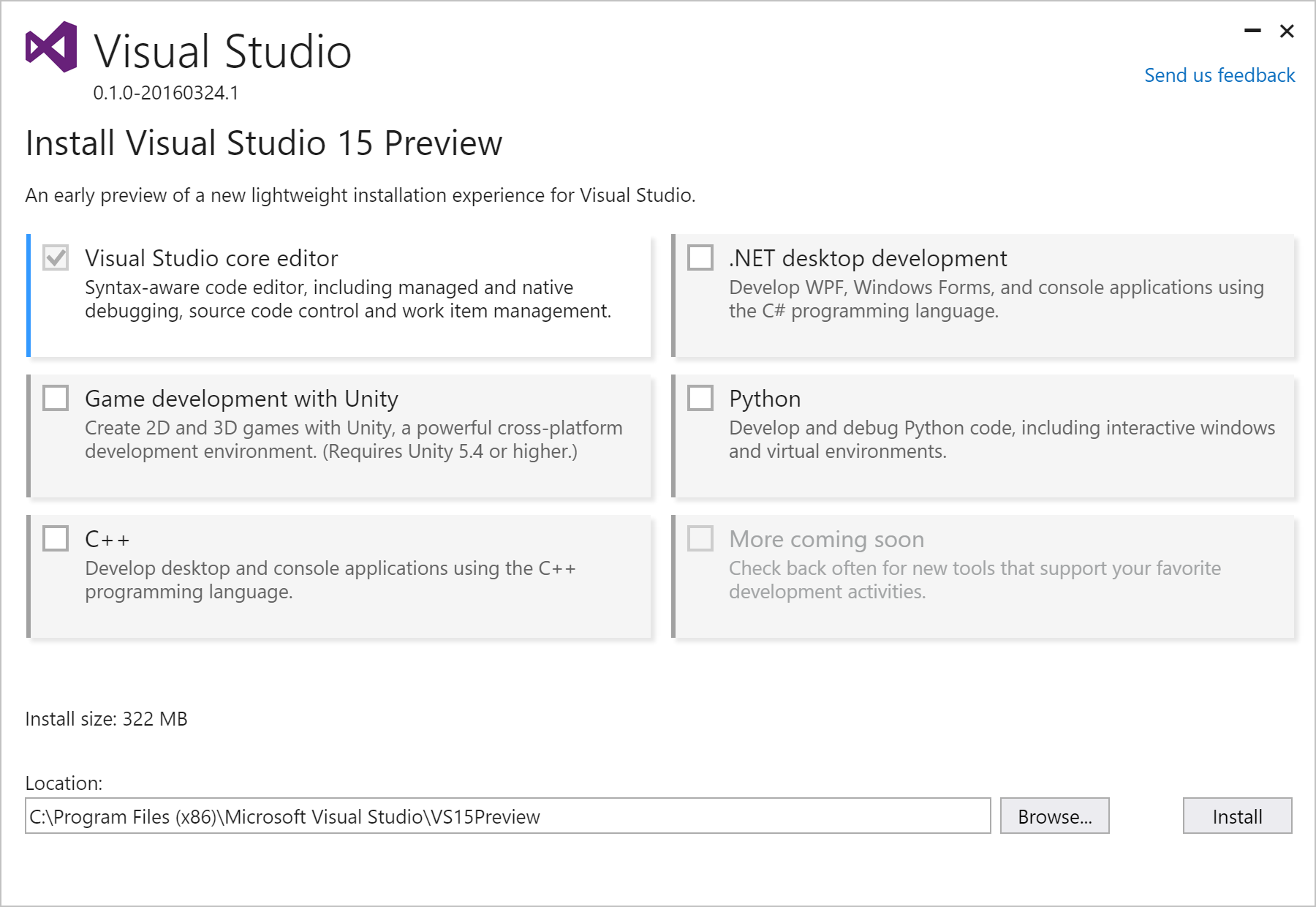
Microsoft wants to make it easier for developers to access the tools they need to build their mobile, cloud or desktop solutions, regardless of the language or framework. The company has announced the minimal code editor experience that gives developers the core elements of Visual Studio in just a couple of hundred megabytes.
The code editor includes the shell itself, the code editor, the managed and native debugger engines, and source code control support. According to Tim Sneath, principal lead program manager for the Visual Studio Platform, while the installer only gives a subset of the full product, it provides a good foundation for tailored development experiences.
Microsoft is also providing its other tools and SDKs into bundles to help developers get up and running quickly. The first four bundles available to install include: .NET desktop development, Python, C++ and game development with Unity.
More information is available here.
DuckDuckGo to help developers
The search engine DuckDuckGo is improving its Instant Answer service in order to better serve developers. The organization announced increasing the programming Instant Answers to give developers fast access to code examples, syntax help and answers to technical questions.
“DuckDuckGo is fortunate to have a great community of developers who write, review and fix code in our open source repositories every day. For several years now we’ve relied on volunteers whatever their level—beginner to expert—but who can they rely on when they get stuck?” Daniel Davis, DuckDuckGo team member, wrote in a post.
In addition, DuckDuckGo will be providing a table of programming Instant Answer that aims to make it even easier for developers to find answers.
Automic releases new capabilities within its product and services
Automic announced new capabilities within its product and services offerings for Application Release Automation. These capabilities include a practical blueprint that enterprises can use to determine their roadmap to continuous delivery, as well as new pipeline visualization tools, open-source community driven content, Marketplace integration, online maturity assessments, and more.
With today’s announcement, Automic provides enterprises, across all industries and geographies, with the capabilities such as agility, scalability, reliability and speed to drive competitive advantage, respond to customer needs and ensure customer loyalty in this digital age.
“We are simplifying how our customers execute on their DevOps journey by specifically targeting all of the applications across an enterprise with the goal of driving the digital transformation required by our clients”, said Chris Boorman, chief marketing officer at Automic.
To see a full list of the new capabilities is available here.
A-Frame v0.2.0 announced
The virtual reality framework A-Frame has reached version 0.2.0. A-Frame is used to help developers build virtual content for desktops, iOS, Android and the Oculus Rift. A-Frame gives developers the ability to build 3D scenes with declarative HTML, responsive WebVR scenes and promotes composability and extensibility.
“After three fun and busy months of development, we are proud to announce the release of A-Frame version 0.2.0. This version’s overarching theme is extensibility. For WebVR to evolve quickly, in a period in which VR is dominated by closed native ecosystems, A-Frame needs to enable open experimentation and rapid iteration,” virtual reality developer at Mozilla, wrote in a post. “A-Frame’s inherent extensibility grants developers permissionless innovation, making it the VR-flavored embodiment of the Extensible Web Manifesto.”
The latest version includes improved extensibility and embraces the healthy competition between ideas and APIs.





